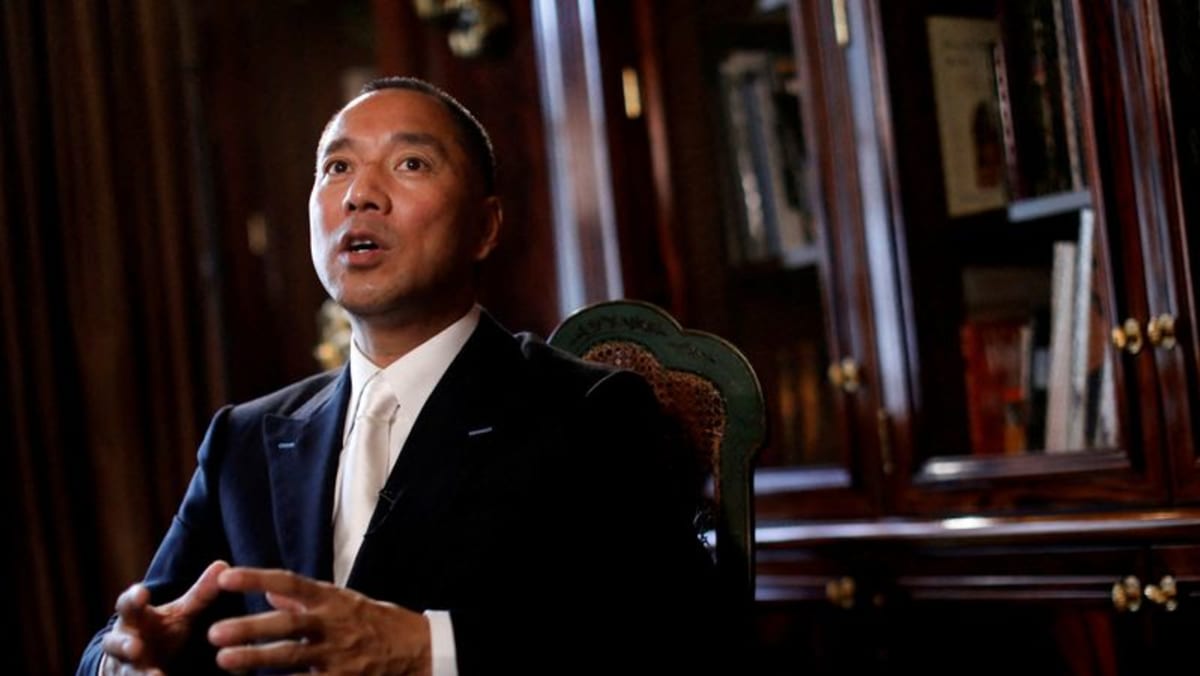Assoc Prof Singh said threat actors could be testing how strong the new PM is, how compact and united the new fourth-generation leadership team is, and at the societal level, to target the Chinese community in Singapore, especially those who became new citizens here.
“More important is the sense of insecurity for Singapore, at a time when our fourth-generation leadership is newly established,” he said. “I think they want to test what these new leaders will do in response.”
Mr Faizal said that whenever a country is undergoing a major political transition, it would attract the attention of other states with an interest in that country’s foreign and defence policy, who may then interfere “subtly through proxy digital actors”.
“Guo and his affiliates took advantage of the leadership handover to run their baseless allegations, because the generational handover, the first in 20 years, was in the spotlight. The handover did attract a very high level of foreign media interest,” said Assoc Prof Tan.
They also strategically capitalised on the intense geopolitical rivalry between the US and China, to run the narrative that the CCP does have ambition beyond China and that Singapore is in China’s orbit, he added.
BEYOND MAINSTREAM PLATFORMS
This latest coordinated spread of disinformation by Guo’s network demonstrates that Singapore is not impervious to foreign influence, said Dr Carol Soon, principal research fellow at the Institute of Policy Studies and adjunct principal scientist at the Centre for Advanced Technologies in Online Safety.
“What is of concern is despite the blocking of social media accounts, such content could still be making their rounds in private chats on messaging apps and other platforms like Discord,” she noted.
Assoc Prof Singh emphasised that such lesser known online platforms should also be monitored for influence activity.
“For me as a security analyst, the distinction between mainstream and non-mainstream has gone, it is over.”
He said that a lot of the platforms that capture people’s attention are non-mainstream because “they are very sexy (and) much more juicy news come from them”.
The message from Guo’s actions is very clear, said Mr Singh, which is that “somebody with money can conduct foreign interference either directly or indirectly”.
“We expose ourselves by involving ourselves overseas so intensely economically, politically and diplomatically. So much that the distinction between the internal and external is becoming almost zero, and I think that makes us very vulnerable (to such threats),” he said of Singapore’s position in the world.
Assoc Prof Tan noted that the directives issued by MHA are only of limited application to Singapore, as the authorities are not asking the social media platforms to actually take down the content.
“If you have a VPN or if you are abroad, you can still access that content,” he said.
“So in that sense, the access restriction direction is symbolic, because it’s not going to deter Guo and his affiliates.”
However, it is still significant as it is one of several calibrated tools within FICA to deal with this type of threat, said Assoc Prof Tan.
COUNTERING SUCH THREATS
“Some people might regard Guo as having no intentions towards Singapore. But that misses the point that Guo and his affiliates have no compunction about using Singapore,” noted Assoc Prof Tan. “Any self-respecting state cannot allow themselves to be used.”
He said that the Singapore authorities are dealing with the issue of foreign interference the same way they do with terrorism – that Singapore is a much sought-after target.
“The perception is that we have good legislative tools and that we put a lot of resources into dealing with various types of foreign interference,” he said.
“For a foreign actor – whether state or non-state – wanting to test their tools, strategies and innovations, they will find Singapore a very attractive target to see how well they fare.”
For Assoc Prof Singh, it was always just a matter of time before FICA was to be operationalised in this manner towards such a threat.
“I think the new war is not with bullets. The new war is in cyberspace, in this kind of soft wars. The majority of our population are digitised, so this is the arena where the changing of the hearts and minds, influencing people, manipulation and dissemination of misinformation, is taking place,” he said.
“We need to be very demonstrative in our actions. And I think we are. What we are doing is really good. We need to, in fact, overkill just to make sure that it has a deterrence value,” he added.

